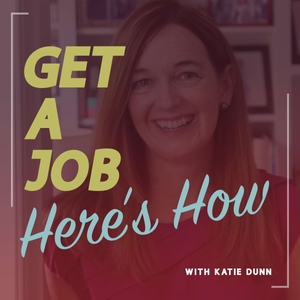
Get Mortgage Ready - Get Ahead of The Game
02/20/23 • 3 min
Getting a mortgage can be a daunting task for many people, especially if you're a first-time buyer. But there are steps you can take to improve your chances of getting approved for a mortgage, and one of the most important ones is to be proactive and get ahead of the game. In this article, we'll go over some of the things you can do to increase your chances of getting approved for a mortgage on the first try.
- Get a copy of your credit report
The first thing you should do when you're considering applying for a mortgage is to get a copy of your credit report. This will give you an idea of what lenders will see when they review your application, and it can help you identify any potential issues that might need to be addressed before you apply.
There are many ways to get a copy of your credit report, but one of the best options is to use a multi-agency search service like Check My File. This service checks your credit report across all three major credit bureaus (Experian, Equifax, and TransUnion) as well as other sources of financial data, giving you a comprehensive view of your credit history.
- Share your credit report with your advisor or bank
Once you have your credit report, it's a good idea to share it with your mortgage advisor or the bank you're planning to use for your mortgage. This will give them a chance to review your report and help you determine which lenders might be the best fit for your circumstances.
In some cases, your advisor or bank might be able to identify issues with your credit report that you weren't aware of, and they can help you address them before you apply for a mortgage. This can save you time and hassle down the line, and it can improve your chances of getting approved for a mortgage.
- Check your personal information
When you review your credit report, make sure to check all of your personal information, including your name, address, and date of birth. If any of this information is incorrect, it can cause issues with your mortgage application, so it's important to get it corrected as soon as possible.
Check your bank statements, credit cards, and personal loans to ensure that your address is correct. Even small errors like misspelled names or missing middle names can cause problems, so it's worth taking the time to double-check everything.
- Use your credit responsibly
Using your credit responsibly is one of the most important things you can do to improve your chances of getting approved for a mortgage. This means staying within your credit limits, making payments on time, and avoiding any negative marks on your credit report.
If you have credit cards, make sure to keep your balances low and pay them off in full each month. Avoid applying for new credit cards or loans before you apply for a mortgage, as this can lower your credit score and make it harder to get approved.
- Close any unused accounts
Finally, it's a good idea to close any unused credit accounts you have before you apply for a mortgage. This includes old credit cards, store cards, and any other accounts you're not actively using.
While it's true that having access to credit can improve your credit score, leaving unused accounts open can also leave you vulnerable to fraud. If you're not monitoring these accounts regularly, it can be difficult to detect fraudulent activity, which can cause problems down the line.
Closing unused accounts can also simplify your financial situation and make it easier to manage your credit overall.
Conclusion
Getting approved for a mortgage can be a stressful and complicated process, but there are steps you can take to increase your chances of success. By getting ahead of the game and reviewing your credit report, sharing it with your advisor or bank, checking your personal in
Please like share and subscribe if you find our information useful
Getting a mortgage can be a daunting task for many people, especially if you're a first-time buyer. But there are steps you can take to improve your chances of getting approved for a mortgage, and one of the most important ones is to be proactive and get ahead of the game. In this article, we'll go over some of the things you can do to increase your chances of getting approved for a mortgage on the first try.
- Get a copy of your credit report
The first thing you should do when you're considering applying for a mortgage is to get a copy of your credit report. This will give you an idea of what lenders will see when they review your application, and it can help you identify any potential issues that might need to be addressed before you apply.
There are many ways to get a copy of your credit report, but one of the best options is to use a multi-agency search service like Check My File. This service checks your credit report across all three major credit bureaus (Experian, Equifax, and TransUnion) as well as other sources of financial data, giving you a comprehensive view of your credit history.
- Share your credit report with your advisor or bank
Once you have your credit report, it's a good idea to share it with your mortgage advisor or the bank you're planning to use for your mortgage. This will give them a chance to review your report and help you determine which lenders might be the best fit for your circumstances.
In some cases, your advisor or bank might be able to identify issues with your credit report that you weren't aware of, and they can help you address them before you apply for a mortgage. This can save you time and hassle down the line, and it can improve your chances of getting approved for a mortgage.
- Check your personal information
When you review your credit report, make sure to check all of your personal information, including your name, address, and date of birth. If any of this information is incorrect, it can cause issues with your mortgage application, so it's important to get it corrected as soon as possible.
Check your bank statements, credit cards, and personal loans to ensure that your address is correct. Even small errors like misspelled names or missing middle names can cause problems, so it's worth taking the time to double-check everything.
- Use your credit responsibly
Using your credit responsibly is one of the most important things you can do to improve your chances of getting approved for a mortgage. This means staying within your credit limits, making payments on time, and avoiding any negative marks on your credit report.
If you have credit cards, make sure to keep your balances low and pay them off in full each month. Avoid applying for new credit cards or loans before you apply for a mortgage, as this can lower your credit score and make it harder to get approved.
- Close any unused accounts
Finally, it's a good idea to close any unused credit accounts you have before you apply for a mortgage. This includes old credit cards, store cards, and any other accounts you're not actively using.
While it's true that having access to credit can improve your credit score, leaving unused accounts open can also leave you vulnerable to fraud. If you're not monitoring these accounts regularly, it can be difficult to detect fraudulent activity, which can cause problems down the line.
Closing unused accounts can also simplify your financial situation and make it easier to manage your credit overall.
Conclusion
Getting approved for a mortgage can be a stressful and complicated process, but there are steps you can take to increase your chances of success. By getting ahead of the game and reviewing your credit report, sharing it with your advisor or bank, checking your personal in
Please like share and subscribe if you find our information useful
Previous Episode

Protecting Your Mortgage and Your Family: Understanding the Key Differences in Personal Insurance Options
Personal insurance is a group of insurance policies that protect an individual's personal life, income, and family in case of death, serious illness, or critical illness. There are various types of personal insurance policies available, each with its unique features. In this blog post, we will discuss the key differences between the different types of personal insurance policies.
Life Insurance:
Life insurance, also known as assurance or life cover, is an insurance policy that pays a lump sum to your loved ones in case of death. The policy allows you to choose the coverage amount and the length of time you need it for, as well as whether you need it for yourself or with your partner. If you have a partner or children who rely on your income, life insurance could be a way of protecting them in case of your death.
Critical Illness Cover:
Critical illness cover, also known as serious illness cover, is designed to minimize the financial impact on you and your family in case of a critical illness like cancer, heart attack, or stroke. The policy pays a lump sum once a claim is made, and some providers may offer payments based on the severity of the illness. The policy pays out when you are diagnosed with a critical illness and survive a certain period of time.
Income Replacement:
Income replacement is a policy that protects you if you are unable to work due to an accident, injury, or illness, including a critical illness. The policy is designed to replace your income if you are unable to work, and the coverage period can vary based on your sick pay policy. If you are employed or the main breadwinner in your household, income protection is something you should consider.
Family Income Benefit:
Family income benefit is a policy that provides a regular monthly income to your family in case of your death. Unlike life insurance, which pays a lump sum, family income benefit provides a sustained income, reducing the financial pressure on families and households.
Private Medical Insurance:
With the NHS being busy, many people are turning to private medical insurance for quick and efficient medical care. Private medical insurance allows you to bypass the NHS and get the medical care you need quickly, without any delays.
Conclusion:
Personal insurance policies provide protection for individuals and their families in case of death, serious illness, or critical illness. It is important to understand the different types of personal insurance policies and their unique features, to ensure you are getting the right coverage for your specific needs. Whether it is life insurance, critical illness cover, income replacement, family income benefit, or private medical insurance, taking the time to understand these policies and seeking advice from professionals can help ensure you are protected in case of any unforeseen circumstances.
Please like share and subscribe if you find our information useful
Next Episode

Check Your Borrowing Amount - Do This Before Applying for a Mortgage
Check to see how much you can borrow before you've started applying for anything can get you in the right position when you come to buy your house. This is something that I've spoken previously about and it's something that I'm getting asked a lot of questions on. So I thought I'd do another episode and another another, yeah, another episode to talk you through.
How it works. Now, the first thing that you can do when you're looking to check your affordability is to check the affordability calculators, and there's lots of them online. There's one on my [email protected]. You can find, even find them when you're searching for houses on things like rightmove, and zr and banks have all got their own online afford.
Calculators. Now, these are great for an indication, but it is just that. It's just an indication as to the borrowing amount because there's lots of complex algorithms that go in to determine how much you can borrow. All depends on the type of income that you've got. So whether you are employed, whether you get bonus, Commission how your overtime is factored in.
If you are on a zero hours contract, if you do a bank shifts as a nurse, if you're self-employed, if you're a limited company owner, that there's an endless list of different bits and pieces of criteria when it comes to affordability. So checking these online calculators. Is, a good starting point, but nothing will replace the need to actually talk to someone.
Talk to your mortgage broker, talk to the bank about your income, especially if it's complex or if you're getting variable pay or if there's anything about your pay that isn't. Standard talk to someone to get your get some guidance on it. Then once you know that what you want to be doing is you want to be planning your buying journey, so you want to be thinking about things like the houses that you're after.
Thinking about things like the monthly payments, what the cost, the total cost of buying that place would be, not just the mortgage payments. Think about things like the council. Gas and electric payments. Is it a standard building? Is the building's insurance going to be fairly cheap? How much is your life cover going to be?
All of these different factors you should be taking into consideration when at the very start. And once you've factored all of those kind of things, and then you've got an understanding of what you want to spend and what your payments will be, you can then move on and get yourself a mortgage in Princip.
And the mortgage and principle is just an indication from a lender that they're going to be able to give you the money that you need to buy your home. It isn't set in stone. It's not binding, it is just in principle. So it's always a good idea that you. At that stage that you're, being as accurate as possible, but yeah, it's a good starting point to see if you're going to get a mortgage.
Please like share and subscribe if you find our information useful
If you like this episode you’ll love
Episode Comments
Generate a badge
Get a badge for your website that links back to this episode
<a href="https://goodpods.com/podcasts/scottish-mortgage-podcast-296584/get-mortgage-ready-get-ahead-of-the-game-39440005"> <img src="https://storage.googleapis.com/goodpods-images-bucket/badges/generic-badge-1.svg" alt="listen to get mortgage ready - get ahead of the game on goodpods" style="width: 225px" /> </a>
Copy




